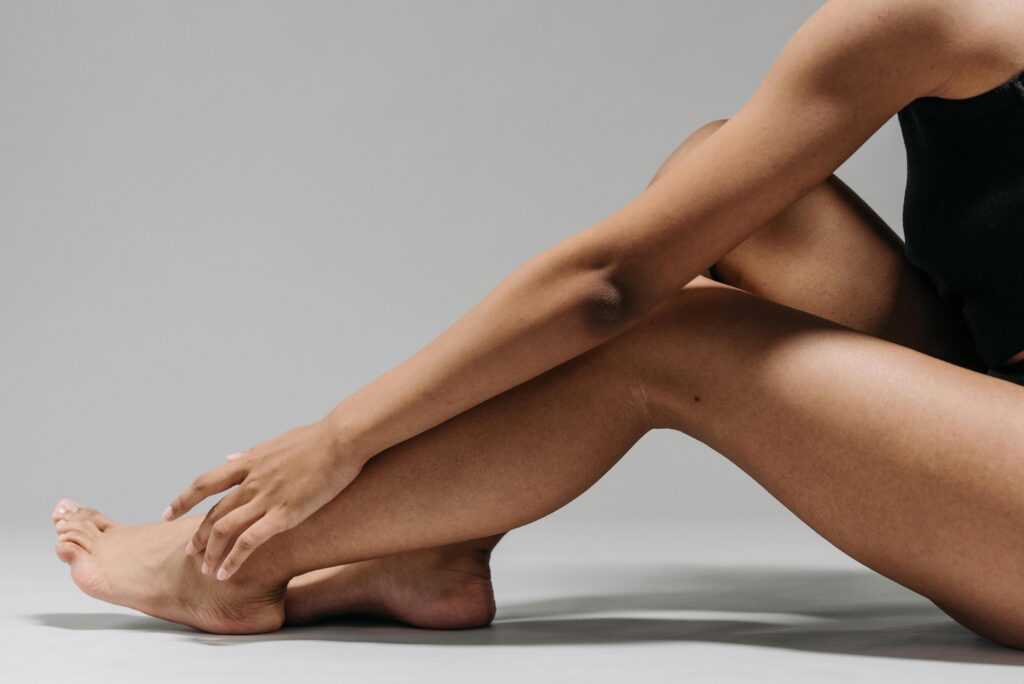Restless Leg Syndrome Affects Both the Afflicted and Their Spouse
Restless Leg Syndrome (RLS) is a neurological disorder that causes an uncontrollable urge to move the legs, usually due to uncomfortable sensations. Symptoms often worsen in the evening or at night, making sleep difficult. While RLS is primarily considered a physical condition, its effects on mental health can be profound—not just for the afflicted individual, but also for their spouse or partner.
The Psychological Impact on Those with RLS
For individuals living with RLS, the constant discomfort and sleep disturbances can take a significant toll on their mental health. Here are some key psychological effects:
1. Increased Anxiety and Stress
The unpredictability of RLS symptoms can lead to heightened anxiety. Individuals may worry about whether they’ll be able to sleep or find relief, leading to a cycle of stress that exacerbates symptoms. North Jersey Health & Wellness (NJHW) offers comprehensive anxiety management services, including therapy and medication management, to help patients regain control of their mental well-being.
2. Depression and Mood Changes
Lack of sleep is closely linked to depression. Chronic sleep deprivation due to RLS can lead to irritability, feelings of hopelessness, and difficulty finding joy in daily activities. Over time, this can contribute to clinical depression. NJHW provides personalized mental health support, including therapy and psychiatric evaluations, to help individuals manage depression related to chronic conditions like RLS.
3. Cognitive Impairment
Persistent fatigue and sleep loss can impact concentration, memory, and decision-making, making daily tasks more challenging and frustrating. NJHW offers cognitive behavioral therapy (CBT) and wellness coaching to help individuals improve focus and build resilience against cognitive decline associated with chronic sleep disturbances.
The Effect on Spouses and Partners
When one partner suffers from RLS, the other is often affected as well. The disorder can disrupt a couple’s sleep patterns, create tension, and affect overall relationship satisfaction.
1. Sleep Disruptions
Spouses may experience frequent awakenings due to their partner’s movements or complaints of discomfort. This leads to sleep deprivation for both, which can cause fatigue, mood swings, and decreased patience. NJHW provides sleep therapy and lifestyle coaching to help both partners develop better sleep hygiene and manage disruptions effectively.
2. Increased Stress and Frustration
A partner who does not fully understand RLS may become frustrated, thinking their loved one is exaggerating or being restless for no reason. The constant interruptions and lack of restful sleep can strain even the strongest relationships. NJHW offers couples counseling and stress management programs to help partners navigate the emotional challenges associated with RLS.
3. Feelings of Helplessness and Resentment
Watching a loved one suffer without being able to provide relief can lead to feelings of helplessness. Over time, unresolved frustration can turn into resentment, especially if the non-afflicted partner feels their own well-being is compromised. NJHW’s family and relationship therapy services can help spouses understand RLS and develop healthier coping strategies together.
Strategies for Coping Together
Despite its challenges, couples can work together to manage RLS and its effects on mental health.
1. Education and Understanding
Both partners should learn about RLS, its symptoms, and potential triggers. Understanding that it is a legitimate neurological condition can help reduce frustration and promote empathy.
2. Establishing Sleep Solutions
To improve sleep quality, consider separate blankets, adjustable beds, or even separate sleeping arrangements if necessary. Maintaining a consistent sleep schedule and optimizing the sleep environment can also help. NJHW’s sleep specialists can help develop personalized sleep strategies for RLS sufferers and their partners.
3. Exploring Treatment and Wellness Services
Treatment for RLS can include lifestyle changes, medications, and alternative therapies. Consulting a healthcare provider can help find the best approach. Additionally, various wellness services can provide relief and improve quality of life, including:
-
Massage Therapy – Regular massages can help relax muscles and improve circulation, potentially reducing RLS symptoms.
-
Acupuncture – Some individuals find relief from RLS symptoms through acupuncture, which may help regulate nerve activity.
-
Yoga and Stretching Exercises – Engaging in gentle yoga or targeted stretching can help alleviate leg discomfort and improve overall relaxation.
-
Chiropractic Care – Some RLS sufferers report improvement with chiropractic adjustments that focus on spinal alignment and nervous system function.
-
Cognitive Behavioral Therapy (CBT) – Managing stress and anxiety through CBT can help individuals cope with the mental health effects of RLS.
-
Nutritional Counseling – A balanced diet, particularly one rich in iron, magnesium, and vitamin D, may help reduce RLS symptoms. NJHW offers all these wellness services, providing a holistic approach to managing RLS and its impact on mental health.
4. Supporting Mental Well-Being
Since RLS can increase stress and anxiety, incorporating relaxation techniques such as meditation, deep breathing, or therapy can be beneficial for both partners. NJHW’s mindfulness training and relaxation therapy services can help individuals and couples reduce stress and improve their overall well-being.
5. Open Communication
Discussing frustrations and concerns openly can prevent resentment from building up. Couples therapy or support groups can also provide guidance and emotional support. NJHW’s licensed therapists facilitate support groups and couples counseling to help families navigate RLS-related challenges.
Conclusion
Restless Leg Syndrome affects more than just physical health—it has a direct impact on mental well-being and relationships. By understanding the condition, seeking treatment, and utilizing wellness services, couples can navigate the challenges of RLS together, improving both their sleep and overall quality of life. North Jersey Health & Wellness provides a full range of services, from therapy and sleep coaching to nutritional counseling and alternative treatments, to help individuals and couples manage RLS and its mental health effects.
